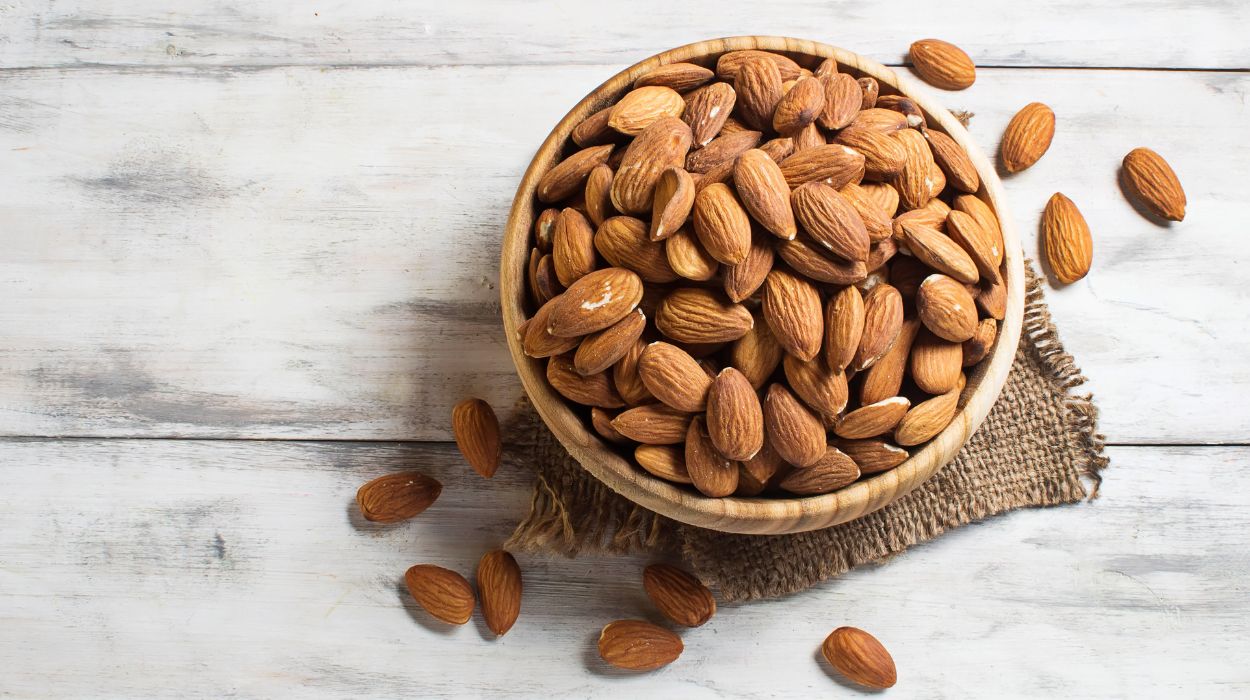If you’re reading this article on how to lower blood pressure fast without hurting your body, then it’s safe to assume you have high blood pressure, or at the very least, you’re interested in high blood pressure. In the next few minutes that it takes to read this article, we’ll be walking you through the essential parts of blood pressure, inform you about what healthy blood pressure is and give you strategies to reduce blood pressure.
Sometimes there are simple strategies to reduce high blood pressure, while other times, you may need to use a blood pressure medication to lower high blood pressure.
6 Natural Ways to Lower Blood Pressure Fast 2024
- Drink Water
- Practice Mindfulness
- Take A Cold Shower
- Eat Almonds
- Supplement Magnesium
- Lower Sodium (Salt) Intake
How To Lower Blood Pressure Fast?
High blood pressure, also known as hypertension, is a common health problem that affects many people worldwide. It is a silent killer as it often goes unnoticed for years without any symptoms. If left untreated, high blood pressure can lead to serious health problems like heart attack, stroke, kidney failure, and more. The good news is that it can be managed and controlled through lifestyle changes, medication, and other treatments. Here are some effective ways to decrease blood pressure fast.
Drink Water
Drinking enough water is essential for maintaining good health, and it can also help to lower blood pressure. When the body is dehydrated[1], it causes the blood to become thicker, making it harder for the heart to pump, leading to an increase in blood pressure. Drinking at least 8-10 glasses of water a day can help keep your body hydrated, which can help lower blood pressure levels.
Practice Mindfulness

Stress is a major contributor to elevated blood pressure, and mindfulness can be a powerful tool to help reduce stress levels. Mindfulness is the practice of focusing your attention on the present moment, without judgment. It can be as simple as taking a few deep breaths and paying attention to your breathing, or engaging in a mindful activity like yoga or meditation. Incorporating mindfulness into your daily routine can help you manage stress and lower blood pressure levels.
Take A Cold Shower
Taking a cold shower[2] is a simple, yet effective way to lower blood pressure. Cold water causes the blood vessels to constrict, which can help to lower blood pressure. It also triggers the release of adrenaline, which is a natural blood pressure regulator. Cold showers can also help to boost your energy levels, reduce stress, and improve circulation.
Eat Almonds

Almonds are a rich source of magnesium, which is a mineral that plays an important role in regulating blood pressure. A lack of magnesium in the diet can lead to high blood pressure, so incorporating almonds into your daily diet can help to lower blood pressure levels. Almonds are also a great source of healthy fats, protein, and fiber, making them a nutritious snack option.
Supplment Magnesium
Magnesium is a mineral that is essential for overall health, including cardiovascular health. Studies[3] have shown that magnesium can help lower blood pressure levels and reduce the risk of developing hypertension.
Magnesium helps regulate the levels of calcium[4] in the body, which is an important factor in controlling blood pressure levels. Calcium is necessary for the contraction and relaxation of blood vessels, and magnesium helps regulate the balance of calcium in the body, helping to prevent the blood vessels from becoming too constricted.
In addition to regulating calcium levels, magnesium also helps relax blood vessels, reducing the resistance of blood flow and lowering blood pressure levels. Magnesium has been shown to help reduce both systolic and diastolic blood pressure, making it an effective natural remedy for hypertension.
Magnesium is found in various foods, including leafy green vegetables, nuts, seeds, and whole grains and can also be taken as a dietary supplement. It is important to consult a doctor or healthcare professional before taking magnesium supplements, as high doses can have adverse effects.
Lower Sodium (Salt) Intake
Sodium is an essential mineral that is found in many foods, but too much of it can raise blood pressure and increase the risk of heart disease and stroke. A diet high in sodium can lead to fluid retention, which can cause an increase in blood volume and thus, increase blood pressure. Therefore, reducing sodium intake is an effective way to lower blood pressure naturally.
Studies have shown that reducing sodium intake can lower blood pressure in both people with normal blood pressure and those with high blood pressure. The American Heart Association[5] recommends limiting sodium intake to less than 2,300 milligrams per day and aiming for an ideal limit of 1,500 milligrams per day. This can be achieved by making simple changes to your diet, such as choosing fresh fruits and vegetables instead of processed foods, which are often high in sodium, and using spices and herbs to season your food instead of salt.
Another way to reduce sodium intake is to read food labels carefully and choose products that are low in sodium. Eating out can also be a challenge, but you can ask for low-sodium options or request that the restaurant leave out added salt in your food. Additionally, cooking at home and using fresh ingredients can help you control the amount of sodium in your diet.
What Causes High Blood Pressure?
High blood pressure referred to as hypertension, is a common health concern that affects millions of people throughout the world. It occurs when the force of blood against the walls of your arteries becomes too high. This can lead to a range of serious health problems[6], including heart disease, stroke, kidney disease, and more. Understanding what causes high blood pressure is essential to help prevent and manage this condition.
One of the most common causes of high blood pressure is genetics[7]. If you have a family history of hypertension, you are more likely to develop this condition. Other factors that increase the risk of high blood pressure include age, as blood pressure tends to increase as you get older, and gender, as men are more likely to develop hypertension than women.
Another major cause of high blood pressure is lifestyle-related[8]. Poor dietary choices, such as a diet high in salt, can lead to high blood pressure. Excessive alcohol consumption, smoking, and lack of physical activity are also contributing factors. Inactivity and a sedentary lifestyle can lead to weight gain and obesity, which in turn can increase blood pressure levels.
Stress[9] is another significant cause of high blood pressure. When you are under stress, your body releases stress hormones, such as adrenaline and cortisol, which cause the blood vessels to constrict, leading to an increase in blood pressure. Chronic stress can cause long-term damage to the cardiovascular system, leading to high blood pressure.
Chronic medical conditions[10], such as diabetes, kidney disease, and sleep apnea, can also cause high blood pressure. These conditions can affect the health of your blood vessels, leading to an increase in blood pressure. Certain medications, such as birth control pills, decongestants, and nonsteroidal anti-inflammatory drugs (NSAIDs), can also increase blood pressure levels.
What Is An Alarming Level Of Blood Pressure?
Blood pressure is a measure of the pressure of blood against the walls of your arteries. It is an important indicator of cardiovascular health and is measured in millimeters of mercury (mmHg). Blood pressure is expressed as two numbers, systolic and diastolic pressure. The systolic pressure is the highest pressure when the heart beats, while the diastolic pressure is the lowest pressure between beats.
An alarming level of blood pressure is considered to be anything above 140/90 mmHg. This is known as hypertension and is considered a serious health problem. Hypertension increases the risk of heart disease, stroke, and other serious health problems, and is often referred to as a “silent killer”[11] because it often goes unnoticed for years without any symptoms.
High blood pressure is a major risk factor for heart disease and stroke, which are two of the leading causes of death worldwide. People with high blood pressure are more likely to develop these conditions, and are at an increased risk of heart attack and stroke. It is important to take high blood pressure seriously and to make the necessary lifestyle changes to control high blood pressure.
Conclusion
In conclusion, high blood pressure can be caused by a range of factors, including genetics, lifestyle, stress, chronic medical conditions, and medications. It is important to be aware of these factors and to make the necessary lifestyle changes to help prevent and treat high blood pressure. Sometimes blood pressure medications are necessary to control blood pressure, but often making lifestyle changes and living a healthy lifestyle can have a major impact of reducing blood pressure. Regular check-ups with a doctor or healthcare professional and monitoring your blood pressure levels are essential to help detect and manage high blood pressure immediately.
Frequently Asked Questions
Blood pressure readings above 140/90 mmHg.
Drink water, practice mindfulness, take a cold shower, eat almonds, take magnesium, lower sodium intake.
An alarming level of blood pressure is considered to be anything above 140/90 mmHg.
 Expert's opinion
Expert's opinion
